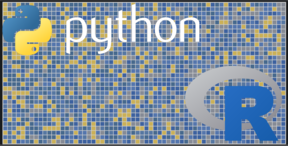Python for Scientific Computing 25-27/11/2025
“Python for scientific computing” is an on-line course on TwitchTV aimed to improve your scientific Python skills starting Tuesday 25th November at 10:00 (3 days, 4 hours per day). 1 ECTS available.

With large language models (LLMs) like ChatGPT, Copilot, Claude, it has never been easier to look like a coder. Just describe what you want in plain language, and a piece of code appears in less than 15 seconds, ready to be copy-pasted to wherever you will run the code. Sometime these tools even run the code for you.
But do you actually know what your code is doing? Or where/how these tools are running things for you? Do you trust the process and the final result so that you can put your name on it and be accountable in the peer review process?
If you are not fully sure what your copy-pasted code is doing, the results can range from confusing to catastrophic. You need just a small typo by the LLM, and the code deletes all your data, breaks your analysis right before the deadline, or even worse, leads to research misconduct if your outputs turn out to be wrong.
If you are doing research that requires computations, it is definitely worth learning how to code, or at least learning how to read, test, and run your own code without relying entirely on some AI assistant. Think of it as learning how to drive before activating autopilot: you’ll understand the technology more, and you will always stay in control.
Python and R are the two most popular choices when it comes to programming languages for scientific research. Python is the multi-tool of programming languages: it does everything from data analysis and machine learning to web apps and hardware control. R, on the other hand is a little bit more niche: it is loved by statisticians and data scientists for its elegant syntax and powerful visualization tools.
So, which one should you learn? And the advice: why not learn both?
The good news: you don’t have to embark on this learning journey alone! At Aalto Scientific Computing, together with the extended network at CodeRefinery and CSC, we offer upcoming courses to get you started:
These courses are designed to make your learning experience hands-on and relevant to real research problems, they are beginner friendly, and there is always something for the most advanced users. Not sure where to start? Just look at what your peers are using, and pick one.
And if you’re feeling adventurous, there’s a whole world beyond Python and R: Julia, Rust, MATLAB, C++, and even CUDA for GPU programming.
Learning how to code is a lifelong learning path, and it can be an enjoyable one, even just as a reader rather than someone who will have to speak the language you will learn. Let's take this path together and learn from each other. See you at one of these upcoming courses!

“Python for scientific computing” is an on-line course on TwitchTV aimed to improve your scientific Python skills starting Tuesday 25th November at 10:00 (3 days, 4 hours per day). 1 ECTS available.

The topics of this introductory course include data importing and exporting, handling real-life data sets and creating publication-ready plots with R.




